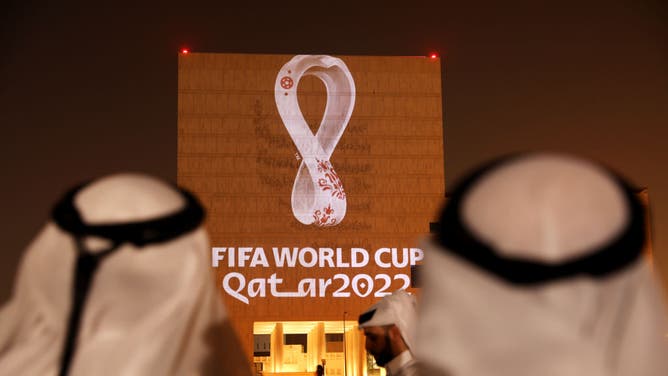Qatar Complains About Facing ‘Unprecedented' Criticism Ahead Of Slave-Driven World Cup
Qatar is frustrated with the criticism it's been receiving from all corners of the world for its abusive, modern-day slave labor practices prior to hosting the 2022 World Cup. The criticisms are warranted, however, as all signs point to the World Cup being slave driven.
“Since we won the honor of hosting the World Cup, Qatar has been subjected to an unprecedented campaign that no host country has ever faced,” Qatar emir Sheikh Tamim bin Hamad al-Thani said. He went on to say Qatar has been on the receiving end of a slanderous campaign that includes "fabrication and double standards that were so ferocious that it has unfortunately prompted many people to question the real reasons and motives behind the campaign."
Just like any other country to ever host a major sporting event, money is the motive behind the operation.

The 2022 World Cup in Qatar will begin in November. (Photo by Christopher Pike/Getty Images for Supreme Committee 2022)
As Breitbart notes, Qatar's labor less-than-stellar labor practices have been well documented.
Qatar had 30,000 migrants imported to work on the seven World Cup stadiums who are being paid incredibly low wages. If these workers complain too strongly about work conditions or wages they are reportedly subject to arrest and physical assault.
Companies Sponsor, Then Control, World Cup Workers
The migrant labor system used in Qatar, and other Gulf Arab states, is called kafala. Companies sponsor foreigners to obtain work and residence permits who then arrive in Qatar via the funding of the companies. The kafala essentially makes these workers properties of the sponsoring companies, who can in turn have them arrested or deported.
Human Rights Watch sent a strong message to Sheikh Tamim after he whined about the criticism Qatar is receiving.
“Deaths and harm cannot be undone, but for so many migrant workers and families waiting for compensation, some financial assistance – a slender slice of the huge profits from the event – could have far-reaching consequences.
"A large-scale attempt to give back to those migrant workers short-changed while making the World Cup possible would send a powerful, positive message from FIFA and Qatari authorities,” the Watch suggested.